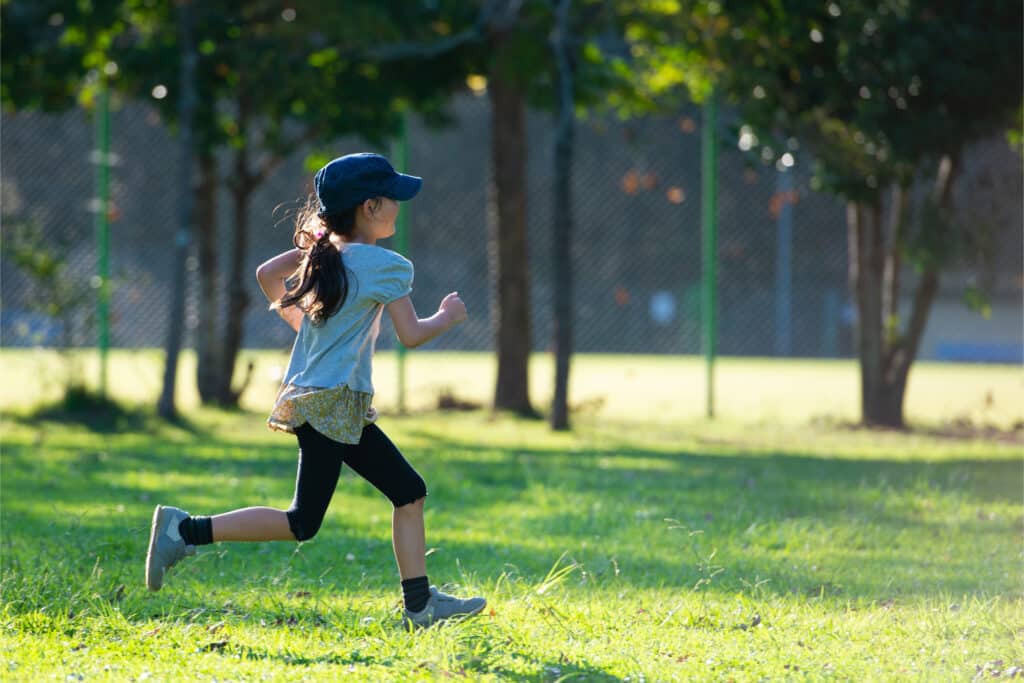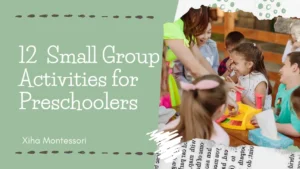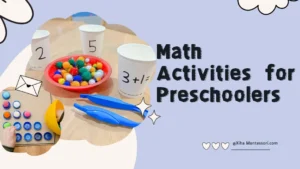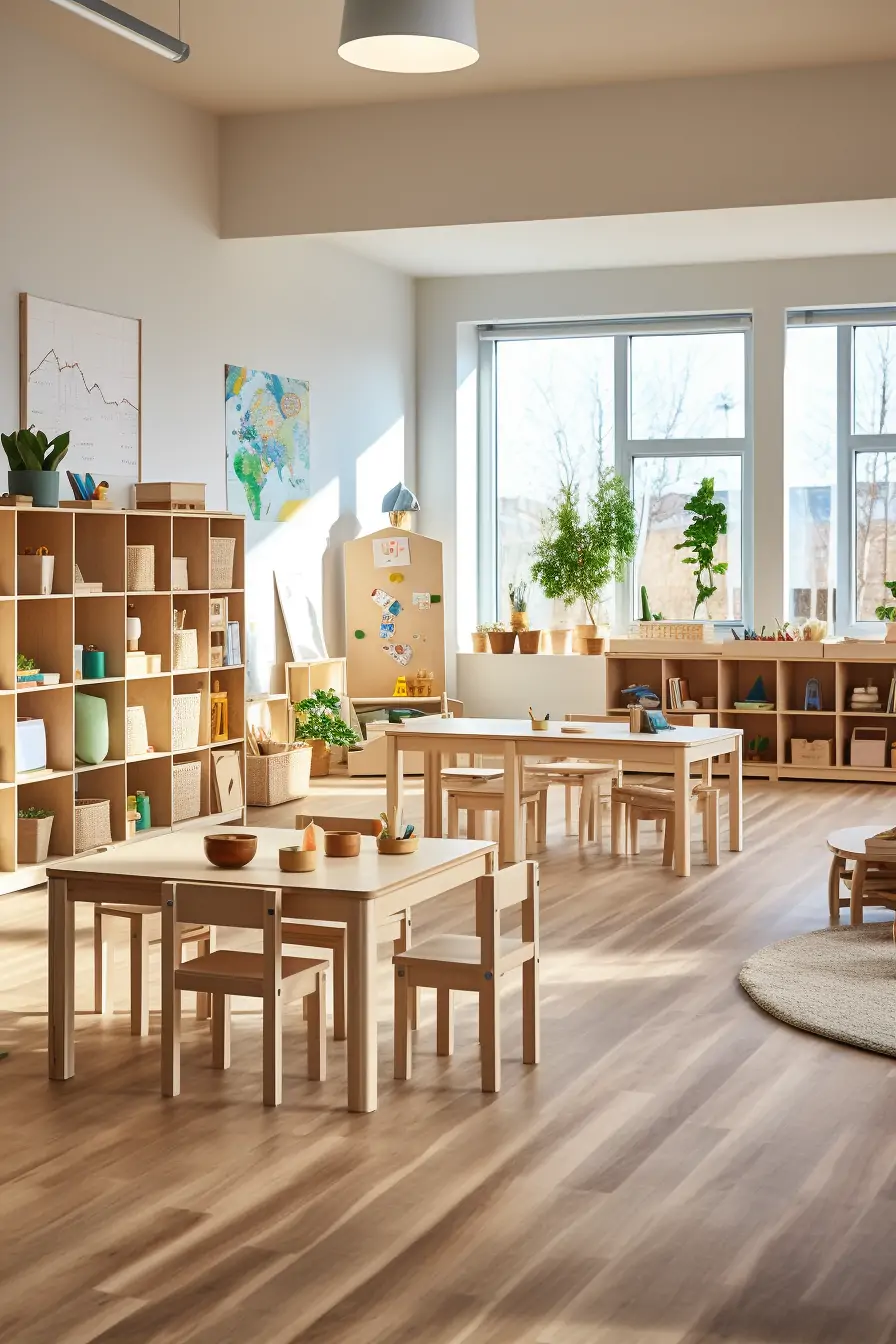As parents, we just want to make sure that our children grow and develop adequately and appropriately for their age. We just want them to be intelligent and successful people when they grow up. But how?
Well, it all starts with their little developing brains.
Children’s brains are like sponges. They soak up everything they see, hear and feel. So, if you want your child to develop their skills and abilities to the fullest extent possible, providing them with the right environment, activities and experiences should be the first step to take.
Children’s brain development
The human brain is one of the body’s most powerful and complex organs. It comprises over 100 billion nerves that communicate with each other via trillions of synapses.
The brain is part of the “central nervous system,” or CNS, which refers to the combination of the brain and the spinal cord that extends from it. Our brain regulates not only our thoughts and memories but also our feelings, sense of touch, motor skills, eyesight, respiration, body temperature, and appetite.
An average baby’s brain is approximately one-quarter the size of an adult’s brain when born. It grows by 50% in the first year (First Things First, 2022).
By the age of three, it will grow roughly 80% of its adult size. And by the time the child turns five, it will increase to nearly 90% of an adult’s brain size (Urban Child Institute, 2011).
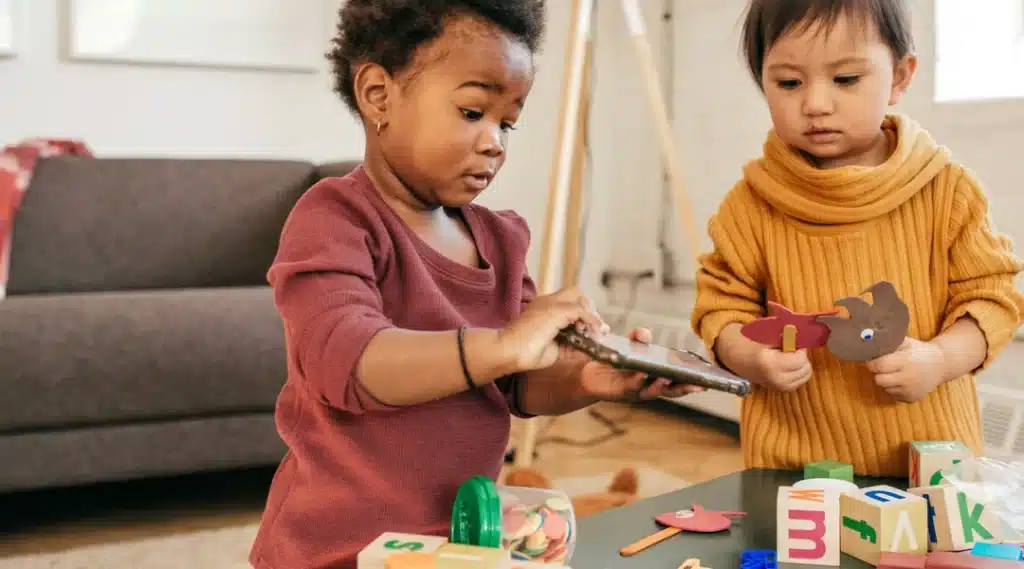
How early experiences affect brain development?
Prenatal sensory experiences significantly impact the development of the brain and nervous system. As such, it is important to stimulate your child’s brain even before birth.
Scientists have conducted a lot of research on the importance of brain development in the early years of a child’s life. Brain development in children accelerates rapidly between birth and three years of age, and positive interactions with caregivers and a stimulating learning environment contribute to this process. Research validates that positive early experiences with adults strengthen brain connections. Everything a child experiences through play and routine helps them to be eager and engaged for a lifetime of learning.
Early experiences help them become independent and understand the reason for every transition. With the help of simple tasks, you can teach them about different aspects of life, like hygiene, respect, patience, etc. Brain development through early childhood education helps them tap into their creativity and imagination.
The importance of brain development in the early years
The first five years in a child’s life are of utmost importance. Their brain development is the fastest in these five years. It is essential, then, that the first five years of a child’s life provide them with the optimum environment to be nurtured and to grow, as “brain development is vulnerable to toxic stress.” (Australian Early Development Census, 2013)
Play-based learning can be used to stimulate child brain development to counteract toxic stress in the environment. This learning style is important for the development of confident and capable learners. When brain development in early childhood education employs play-based learning, children can construct their own understanding and learn collaboratively with their peers. In addition, children are given the opportunity to make connections between new learning and prior experiences, further developing concepts and relationships.
Early childhood education and brain development in children are of utmost importance. They will prepare a child’s brain to build on what they have already learned and experienced when they start school at the age of five.
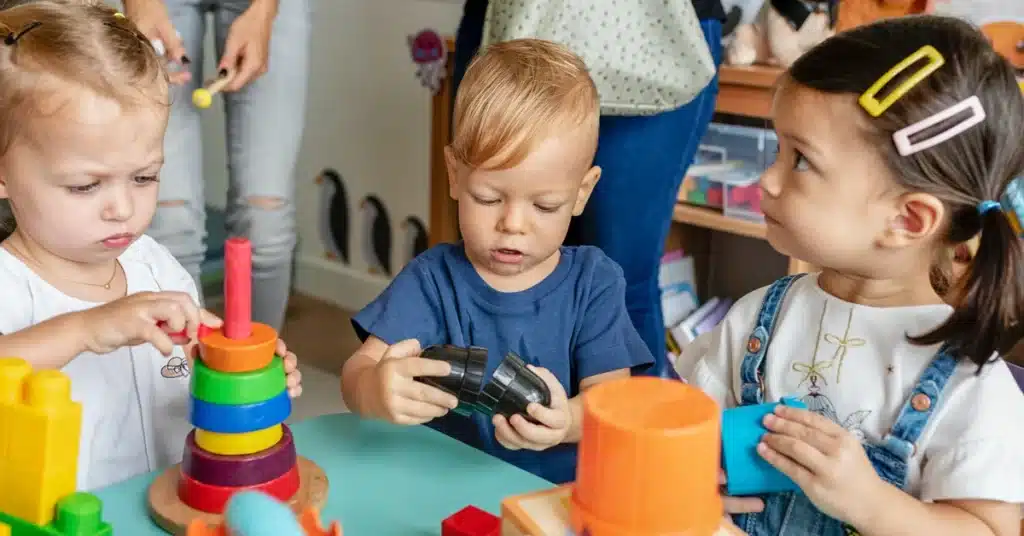
How to stimulate child’s brain development
As a parent, one important thing you can do to aid your child’s brain development is to provide a safe, nurturing environment. You’ll want to expose your child to a wide variety of experiences, from books and music to toys and games.
Children’s brains form 700 neural connections every second. These connections make way for children to develop and adapt constantly. But the question is, how do we take advantage of this growth in the best way?
We understand that brain development is a lifelong process. Still, there are some specific times when your child’s brain is especially receptive to learning. We also understand that positive interactions between children and their caretakers are the best way to boost cognitive development. Every time an adult connects with a child, their brains make connections to relate to their environment. That’s why we foster children’s brain development through a play and interest-based approach.
Below are a few activities to help stimulate your child’s brain development.
1. Organisation and cleaning
We let children sort socks, water plants, and sweep in the toddler room to improve their hand-eye coordination and overall motor skills.
2. Early literacy and numeracy activities
Preparing their brains for the preschool classroom, where early literacy and numeracy abilities are explored, can be as simple as doing puzzles or sorting, stacking, and arranging blocks according to size.

3. Sensory tasks
Children in preschool learn by singing songs, telling stories, talking to each other, painting, playing with sand, water, clay, and building blocks, and doing typical tasks like cooking, fastening buttons, and tying ribbons and shoelaces.
4. Games
We encourage kids to play games that involve the use of hands.
Activities that involve hands are not only fun for children but also help them to interact physically. Simple games like this little piggy, patty-cake, or puppets engage your child’s hands and brain. They learn how we physically interact with the world as they capture their attention.
5. Relaxation Activities
Yoga, meditation, and mindfulness are also practised at Kids Club. These activities help children’s brains grow by letting them focus on something while simultaneously having to control their bodies.
6. Music and dancing
Music and movement are also great ways to help a child’s brain grow and develop. The child’s brain grows as they start to understand rhythm, rhyme, and new words through singing.
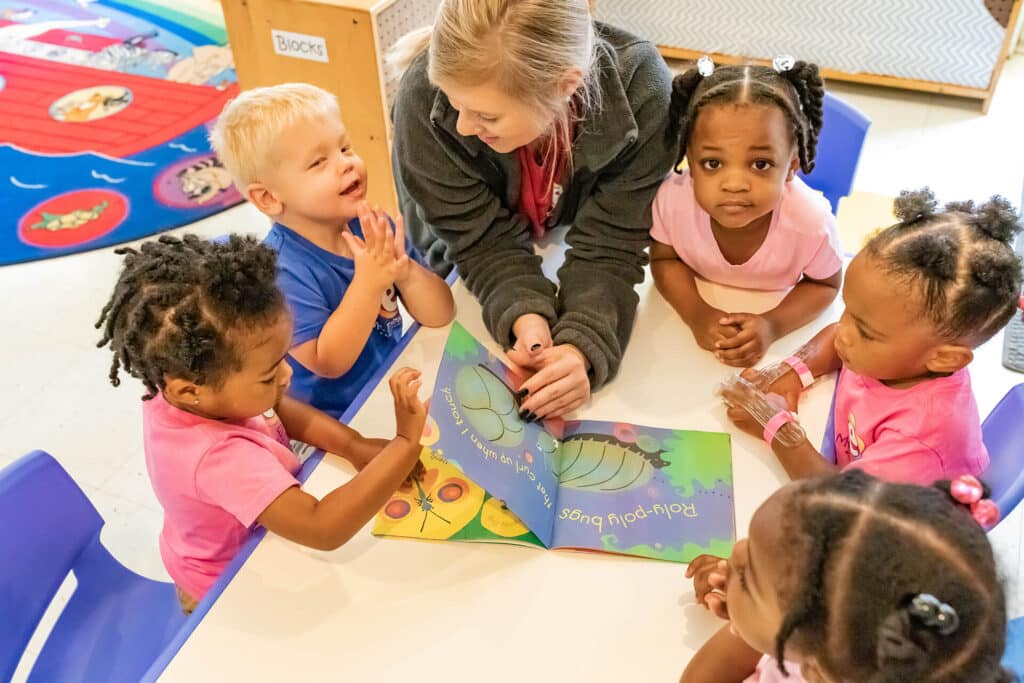
7. Take Your Child on Day Trips
Outdoor activities are even more effective for brain development in children. Plan excursions or simply take your child to the park every evening. Taking them to an aquarium, fountain or on a bus ride will allow them to have new experiences. Such places have so much movement that your child’s brain will want to grasp more about the environment around them.
8. Teach Your Child Another Language
Research shows that bilingual children are smarter than those who speak only one language. Learning two languages makes your child use different parts of the brain. If you don’t know another language yourself, perhaps the two of you can learn together. Learning a new language, even just a few sentences, can be a fun activity that enhances communication skills. Not only that, but it can also help your child see the world from a different perspective.
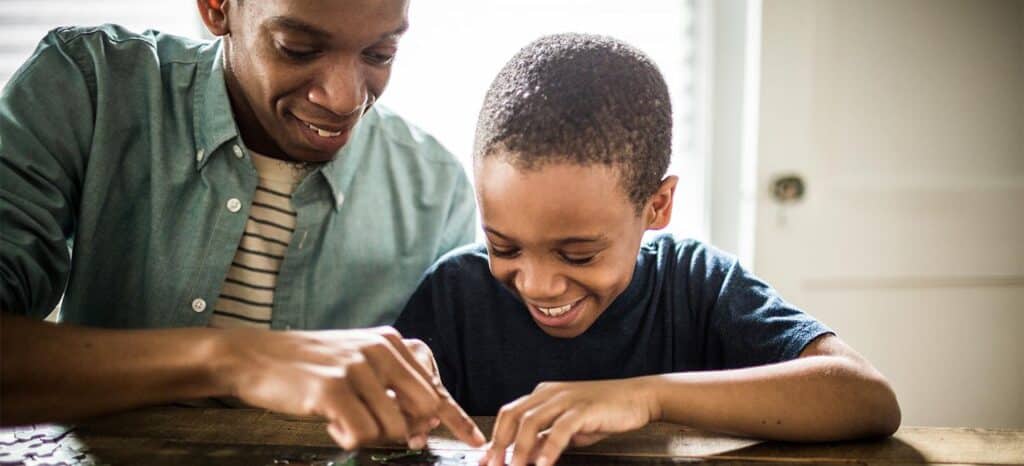
Limited stimulation of brain development impact on child development
Some parents ask us, “how does limited brain stimulation affect child development?” The answer lies in the synapses of the brain. Synapses are the small electrical connections that form in the brain due to brain activity. The more stimulations a child has, the more synapses they will have. Repeated exposure to the same stimulus strengthens and solidifies these connections. For example, if you repeatedly sing songs with your child, they will eventually develop language skills.
However, some children don’t get the cognitive stimulation they need as often or as required. Developmental delays in babies can be attributed back to this lack of stimulation.
Babies who aren’t stimulated and enthused by fundamental interactions tend to suffer varying developmental delays. Minimal stimulation can lead to minor psychological, emotional, and social repercussions such as:
- intellectual delay
- social isolation
- inability to control one’s emotions
- or a lack of self-control
These are just some of the several signs of limited brain stimulation that may develop as they grow. Typically, these result from a lack of attention, motivation, and early stimulation that causes frustration.
As such, children must receive frequent stimulation from the time they are in the womb until they are seven years old, while their brains are at their most adaptable state.
Brain development based on current interests
With the right level of brain stimulation in a nurturing environment, a child will be able to reach their potential. The relationships fostered in early childhood education are essential components for establishing confident and capable learners.
The activities that the child chooses to partake in are based on their own interests. Still, the prepared materials and activities in the environment should help instil in the child the need to master the activity. Children have an innate longing for information and curiosity, so by presenting materials that they can use to figure out the answers, educators will help to stimulate their brains further. For example, a toddler may be attracted to tiny objects and routines, while a preschool-aged child is more focused on numbers or telling stories. Thus, activities that will stimulate your child’s brain development should be of high quality. This early experience sets them up for success at school, throughout their adolescence and into adulthood.
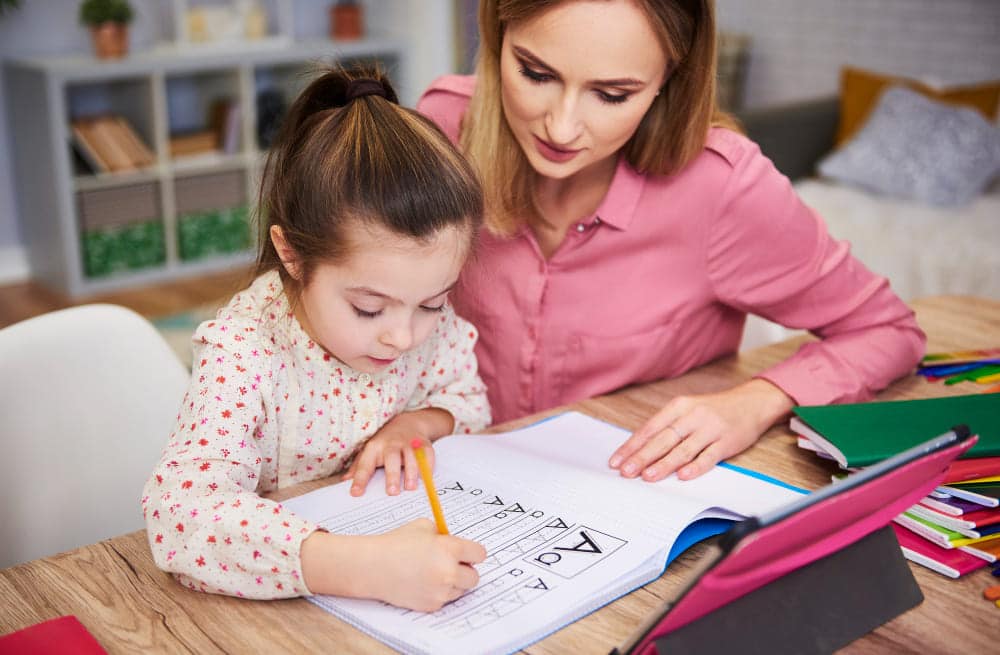
Stimulating brain development in children through play-based learning
Education and brain development in children begins at an early age and are critical to a child’s success in school. By the time a child turns five, their brain should have experienced many things.
We believe that developing a child’s full potential necessitates a combination of appropriate brain stimulation and supportive home and school environment. A strong foundation for future success is harnessed through solid relationships in early childhood education. And that’s what we strive to do. We strive to raise children to be self-assured and capable through our play-based learning approach.

